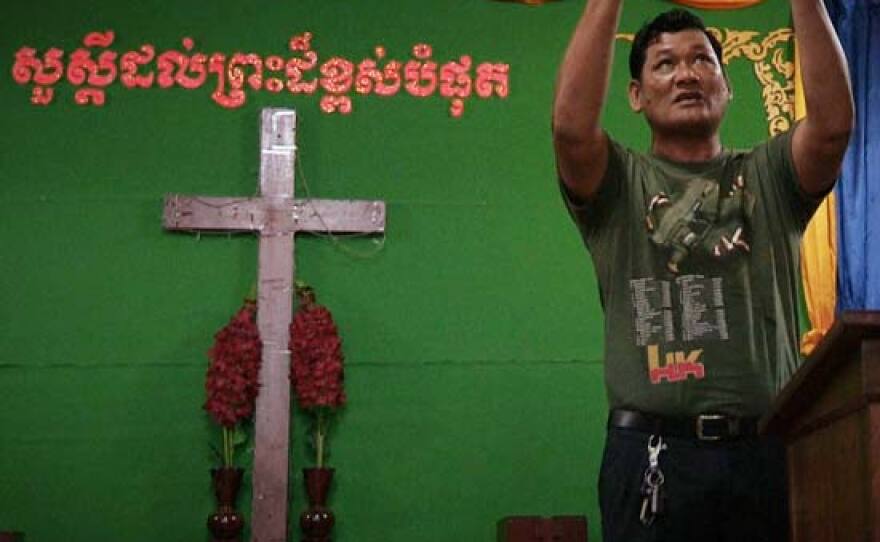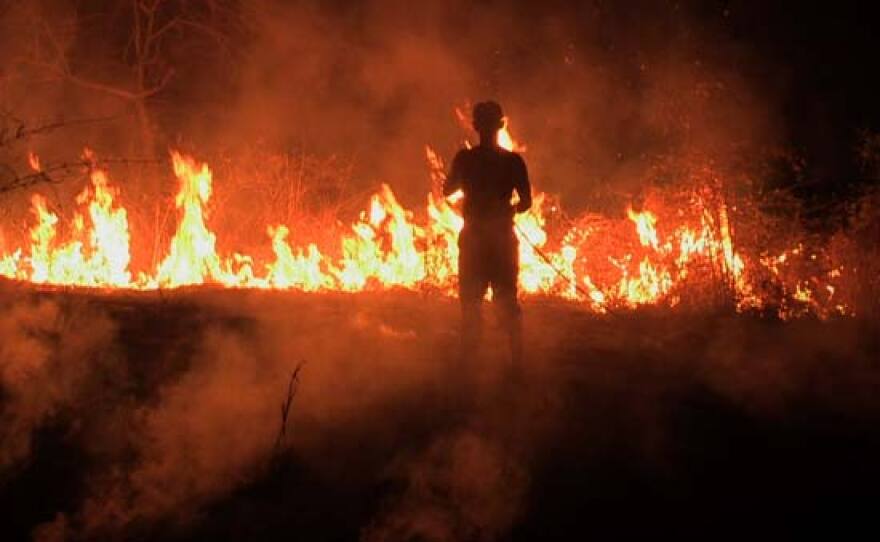Featuring brutally candid testimony, “The Storm Makers” is a chilling exposé of Cambodia’s human trafficking underworld and an eye-opening look at the complex cycle of poverty, despair and greed that fuels this brutal modern slave trade. More than half a million Cambodians work abroad and a staggering third of these have been sold as slaves. Most are young women, held prisoner and forced to work in horrific conditions, sometimes as prostitutes, in Malaysia, Thailand and Taiwan. The film tells its story from the perspectives of a former slave whose return home is greeted with bitterness and scorn by her mother; a successful trafficker—known in Cambodia as a “storm maker” for the havoc he and his cohorts wreak—who works with local recruiters to funnel a steady stream of poor and illiterate young people across borders; and a mother who has sold to the recruiter not only local girls, but also her own daughter.

Filmmaker Quote
“Cambodian migrants have been reduced to the status of slaves. They are transparent, or worse, completely invisible. I want migrants like Aya to feel free in front of the camera, allowing words to serve as therapy and an escape from the past.”


Written and directed by French-Cambodian filmmaker Guillaume Suon, “The Storm Makers” has its national broadcast premiere on Monday, Aug. 31, 2015 on the POV (Point of View) series on PBS. POV is American television’s longest-running independent documentary series and the recipient of a 2013 MacArthur Foundation Award for Creative and Effective Institutions.
At the age of 16, Aya was sold to work as a maid in Malaysia. She was exploited and beaten and eventually ran away, only to be captured and raped. When she returns home with an infant son, she is just as poor as when she left. Her mother greets her not with joy, but with anger that her daughter has come back with yet another mouth to feed instead of money. “I should have died over there,” says Aya in a singsong, childlike voice that masks the horrors she endured.
The young people from her remote village have migrated to work abroad. Empty houses are left behind. Cambodians call places like Aya’s village “ghost towns.” Suon and his assistant director, Phally Ngoeum, researched and filmed for three years, spending long periods in Cambodia’s villages and cities, and were able to gain the trust of both the victims and perpetrators of trafficking.
Pou Houy, 52, is a successful trafficker who runs a recruitment agency in Phnom Penh and claims to have sold more than 500 girls. Shockingly outspoken and shameless, he expresses no remorse and sees himself as a smart businessman, a good provider and even a good Christian. Although his company has been accused of trafficking by the local media, he has never been investigated by the police and continues to recruit young and poor Cambodians to work abroad. Pou Houy’s enterprise relies on local recruiters, who bring him candidates from their rural communities. One of these is Ming Dy, who sold her own daughter and continues to supply Houy with new recruits from her village. She justifies her actions by claiming she has no other way to pay her bills.
In one wrenching scene, Ming Dy’s husband cannot bring himself to speak to his daughter when she calls from a new job abroad, where she earns a dollar a day. “I told my wife not to sell young people from the village,” he says. “Buddha condemns those who sell people like animals. I could have sold the bike and the oxen to pay back our debts. . . . But this money will bring us bad luck.”
In another, a woman shows a picture of her 20-year-old daughter, who committed suicide in Cambodia after being trafficked. “She was so pretty,” says Ming Dy. The mother tearfully warns a new candidate for migration, “Don’t go abroad, girl!”
Pou Houy, the trafficker, supports not only his immediate family, but a dozen or so other relatives as well. His modern home, fancy car and concrete driveway contrast sharply with his relatives’ house right next door and its dirt road. But food is plentiful, and they are all better off than most people. “Does the trafficker feel regret?” asks Suon. “He was starving before, and made a promise to himself never to be poor again. From his point of view, in Cambodia you have only two choices: You are either a slave or a trafficker.”
How can a country descend into a state where trafficking family members and neighbors becomes acceptable? “Five or six years ago, during the financial crisis, a lot of factories shut down in Cambodia,” says Suon. “Hundreds of thousands lost their jobs and had to find a way to earn money. Trafficking networks took power because they were able to send thousands and thousands of people abroad—for them it was a golden opportunity, because people were starving.”
The film explores not only the political and economic roots of human trafficking but also the moral choices being made by those on both sides of the equation. Asks Suon: “Would you sell your neighbor or even your own child to a trafficking network in order to save your family? Which one of your children would you sacrifice? What becomes of your humanity once you decide to exploit another human being for profit?"
“The Storm Makers,” an Official Selection of the 2015 International Documentary Film Festival Amsterdam, won the Full Frame Inspiration Award at the 2015 Full Frame Documentary Film Festival, the Windows on the World Prize for Best Feature Film at the 2015 Festival of African, Asian and Latin American Cinema and the Mecenat Award for Best Asian Documentary Film at the 2014 Busan International Film Festival.
Past episodes of POV are available for online viewing. POV is on Facebook, Google +, and you can follow @povdocs on Twitter.





